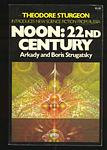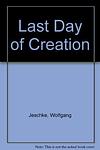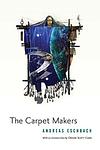The Greatest Russian, German "Science fiction, Fiction" Books Since 1950
Click to learn how this list is calculated.
This list represents a comprehensive and trusted collection of the greatest books. Developed through a specialized algorithm, it brings together 300 'best of' book lists to form a definitive guide to the world's most acclaimed books. For those interested in how these books are chosen, additional details can be found on the rankings page.
Genres
Science fiction is a genre of literature that explores the potential consequences of scientific and other innovations on society and individuals. It often features futuristic or imaginary settings, advanced technologies, and scientific concepts that are not yet fully understood or realized. Science fiction can encompass a wide range of themes, including space exploration, time travel, artificial intelligence, and alternate realities. It is a genre that allows authors to speculate on the future of humanity and the impact of scientific progress on our lives.
Countries
Date Range
Reading Statistics
Click the button below to see how many of these books you've read!
Download
If you're interested in downloading this list as a CSV file for use in a spreadsheet application, you can easily do so by clicking the button below. Please note that to ensure a manageable file size and faster download, the CSV will include details for only the first 500 books.
Download-
1. The Egghead Republic by Arno Schmidt
The book is a satirical science fiction novella that takes readers on a journey through a post-apocalyptic world. Set in a future where a catastrophic event has fragmented society, the story follows a journalist as he travels to an artificial island known as the Egghead Republic, a haven for intellectuals and scientists. This enclave is dedicated to preserving knowledge and culture amidst the chaos of the outside world. The narrative is characterized by its linguistic inventiveness and complex wordplay, as it explores themes of isolation, the role of intellectuals in society, and the nature of human civilization through the lens of a dystopian future.
-
2. The Glass Bees by Ernst Jünger
"The Glass Bees" is a novel set in a future dystopian society, where technology has advanced to the point where robotic bees are being used for honey production. The story follows a former cavalryman who, desperate for employment, accepts a job from a powerful technocrat to test out these mechanical bees. As the protagonist gets more involved in the technocrat's world, he begins to question the morality and implications of such advancements, leading to a deep exploration of the intersection between technology and nature, and the potential consequences of unchecked technological progress.
-
3. The Swarm by Frank Schatzing
"The Swarm" is a science fiction novel that explores the disastrous consequences of mankind's exploitation of the world's oceans. The narrative follows a group of scientists around the world as they try to understand a series of inexplicable, catastrophic natural disasters. They eventually discover that these events are not random but are the result of a collective intelligence in the sea, a swarm of marine life that has decided to fight back against humanity's destruction of their habitat. The book combines elements of ecological thriller, disaster novel, and speculative fiction as it explores the potential consequences of human interference with the natural world.
-
4. Roadside Picnic by Arkady Strugatsky, Boris Strugatsky
"Roadside Picnic" is a science fiction novel set in a post-apocalyptic world where mysterious extraterrestrial visitors have left behind dangerous and enigmatic zones known as "Visitation Zones." These zones are filled with hazardous artifacts that grant strange and unpredictable powers to those who come into contact with them. The story follows Redrick Schuhart, a "stalker" who ventures into the zones to retrieve valuable artifacts while navigating the treacherous landscapes and facing the moral dilemmas that arise from the desperate and corrupt society in which he lives.
-
5. Menschen Wie Götter by Sergej Snegow
This science fiction novel unfolds in a distant future where humanity has achieved a utopian society through the development of advanced technology and social systems. The narrative explores complex themes of morality, immortality, and the essence of human nature, as the characters navigate a universe filled with diverse civilizations and the remnants of less advanced human societies. As the protagonists confront challenges that test their ideals and understanding of what it means to be truly civilized, the story delves into philosophical discussions on the potential and limits of human progress, the value of individual freedom versus the common good, and the eternal quest for knowledge and understanding in a boundless cosmos.
-
6. Noon, 22nd Century by Arkady Strugatsky
This book presents a collection of interconnected stories set in the 22nd century, a time when humanity has made significant advances in technology, society, and ethics. The narrative explores various facets of this utopian future, from space exploration and colonization of other planets to the profound changes in human relationships, work, and leisure. Through the eyes of its diverse characters, the book delves into the complexities and nuances of a world where humanity strives to balance technological progress with ecological sustainability and social harmony, offering a hopeful yet reflective vision of the future.
-
7. The Last Day Of Creation by Wolfgang Jeschke
In this thought-provoking science fiction novel, a daring and unconventional narrative unfolds, exploring the concept of time travel as a tool for geopolitical advantage. The story delves into an ambitious project initiated by the United States military, aiming to drastically alter the course of history and secure ultimate power by transporting resources from the past. As the narrative progresses, the ethical, moral, and unforeseen consequences of manipulating time are examined, leading to unexpected and profound implications for humanity's understanding of history, destiny, and the very fabric of the universe. This novel masterfully combines scientific speculation with human drama, challenging readers to ponder the limits of human ingenuity and the price of ambition.
-
8. The Carpet Makers by Andreas Eschbach
This science fiction novel unfolds on a planet where the entire economy and culture revolve around the intricate craft of making carpets from the hair of the craftsmen's wives and daughters. These carpets are highly prized by the galaxy's elite, not just for their beauty but for a mysterious purpose known only to the empire's emperor. The story intricately weaves together the lives of various characters across different planets, revealing the dark secrets behind the carpet-making tradition and the oppressive regime that sustains it. As the narrative progresses, it delves into themes of rebellion, sacrifice, and the quest for freedom, culminating in a revelation that challenges the very foundation of the characters' understanding of their world and their place within the galaxy.
-
9. Metro 2033 by Dmitri Glukhovsky
This novel is set in a post-apocalyptic Moscow, where the remnants of humanity have taken refuge in the underground metro system after a devastating nuclear war. The story follows Artyom, a young man who embarks on a perilous journey through the dark, mutant-infested tunnels of the metro to seek help against a new, mysterious threat that endangers the fragile existence of the metro's survivors. Along the way, he encounters various factions vying for power and control, confronts his deepest fears, and questions his beliefs and the nature of reality itself. The narrative weaves together themes of survival, hope, and the enduring human spirit in the face of overwhelming darkness.
Reading Statistics
Click the button below to see how many of these books you've read!
Download
If you're interested in downloading this list as a CSV file for use in a spreadsheet application, you can easily do so by clicking the button below. Please note that to ensure a manageable file size and faster download, the CSV will include details for only the first 500 books.
Download






